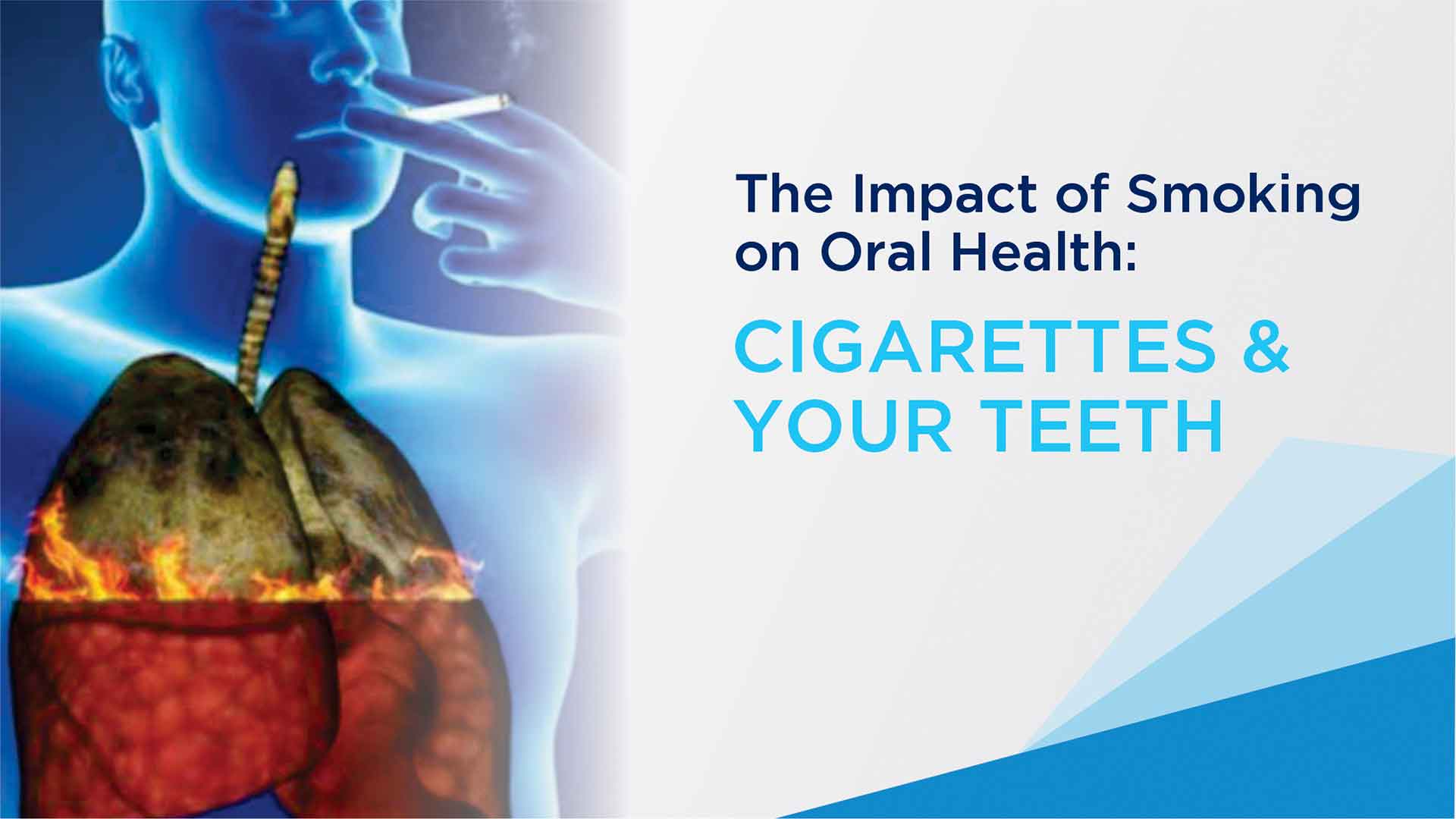Smoking has long been associated with various health risks, and its detrimental effects extend beyond respiratory issues to impact oral health significantly. In this blog post, we’ll delve into the relationship between cigarettes and your teeth, shedding light on the oral health concerns associated with smoking.
Staining and Discoloration:
One of the most visible effects of smoking on teeth is staining. The tar and nicotine present in cigarettes can lead to yellowing and darkening of teeth over time. This cosmetic issue not only affects your smile but can also impact your self-esteem.
Increased Risk of Gum Disease:
Smoking is a major risk factor for gum disease. It weakens the immune system, making it harder for the body to fight off infections. This, coupled with the reduced blood flow to the gums, creates an environment conducive to the growth of bacteria, leading to gum disease and eventual tooth loss.
Delayed Healing:
Smoking hampers the body’s ability to heal, and this includes oral tissues. Procedures such as tooth extractions or gum surgeries may take longer to heal in smokers compared to non-smokers, increasing the risk of complications.
Reduced Saliva Production:
Saliva plays a crucial role in maintaining oral health by neutralizing acids, washing away food particles, and preventing tooth decay. Smoking can lead to a reduction in saliva production, creating an environment where harmful bacteria thrive, contributing to cavities and other dental issues.
Risk of Oral Cancer:
Perhaps the most severe consequence of smoking on oral health is the increased risk of oral cancer. Cigarettes contain numerous carcinogenic substances that can lead to the development of cancer in the mouth, throat, and other oral tissues.
In conclusion, the impact of cigarettes on oral health is profound and far-reaching. From cosmetic concerns like staining to more serious issues such as gum disease and oral cancer, the consequences of smoking on teeth are substantial. Quitting smoking is the most effective way to prevent further damage and improve overall oral health. If you’re struggling to quit, consider seeking support from healthcare professionals or smoking cessation programs.
Remember, taking care of your oral health goes hand in hand with overall well-being. By understanding the connection between cigarettes and your teeth, you can make informed choices for a healthier, brighter smile.

